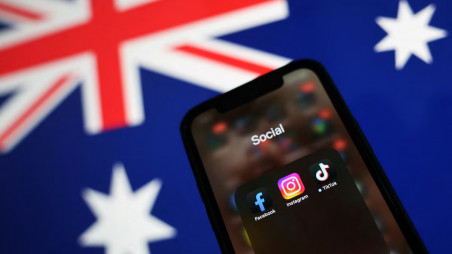Australia has introduced a groundbreaking ban preventing children under 16 from using social media platforms, marking the world’s most stringent restrictions in this area. Passed in Australian parliament on 28 November 2024, the law is set to take effect within the next year.
Under the legislation, tech companies face hefty penalties of up to A$50 million (US$32.5 million) if found in non-compliance. The bill, championed by Prime Minister Anthony Albanese, aims to shield young people from the adverse effects of social media. “We want our kids to have a childhood and parents to know we have their backs,” Albanese stated after the bill’s passage.
The new law surpasses international precedents by setting the highest minimum age for social media access and omitting exemptions for existing users or parental consent.
Implementation and Enforcement
The enforcement will be spearheaded by Australia’s eSafety Commissioner, an internet regulator tasked with overseeing the compliance of tech platforms. The legislation allows the communications minister to determine the platforms subject to the ban. While the final list remains undecided, platforms like Snapchat, TikTok, Facebook, Instagram, and X are expected to be included. Gaming and messaging platforms, as well as account-free websites like YouTube, are likely to be exempt.
To implement these restrictions, the government plans to use age-verification technology, potentially involving biometrics or identity data. However, critics argue that such systems may be ineffective or compromise users’ privacy. Digital experts have also raised concerns about enforcement, highlighting the ease with which users could circumvent restrictions through tools like VPNs.
Children who bypass the ban will not face penalties, shifting the responsibility to social media companies to enforce the measures.
Public Support Amidst Growing Criticism
The legislation has received substantial backing from Australian parents and caregivers. Advocates, such as Amy Friedlander, emphasize its necessity, stating, “For too long, parents have faced an impossible choice between giving in and getting their child an addictive device or seeing their child isolated.” Polling indicates broad parental support, though data remains limited.
However, the policy has faced criticism from youth advocates and tech companies. Members of the eSafety Youth Council argued that young people were excluded from meaningful discussions about the legislation, despite being directly affected. In a submission to the government, Google, Snap, Meta, and TikTok criticized the lack of detail in the bill and questioned its effectiveness. TikTok warned that the broad definition of “social media platform” could encompass nearly all online services. X, formerly Twitter, raised legal concerns, suggesting the law might conflict with international regulations and human rights treaties.
Experts have also cautioned that the ban could drive young users to less regulated corners of the internet, potentially exacerbating risks.
Global Implications
Australia’s decision is being closely monitored worldwide. Norway has expressed interest in implementing similar measures, and the UK has acknowledged the possibility of a comparable ban in the future. Past attempts in other countries, such as France and the US state of Utah, have faced significant challenges, including widespread circumvention and legal barriers.
While acknowledging the complexities, Prime Minister Albanese defended the law as a step in the right direction, likening it to alcohol restrictions for minors. “Implementation won’t be perfect, but we know it’s the right thing to do,” he said.
The law signals a pivotal moment in the global debate over social media regulation, with Australia setting a precedent for stricter measures to protect children online.
Related Stories:
UK Considers Social Media Ban for Children Under 16 Amid Growing Online Safety Concerns
Afghan Taliban’s Absurd’ New Media Laws Imposing Media Ban On Images Of Living Things
Iran missile attack causes $53M in damage in Israel: Media report
















